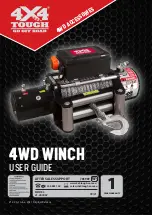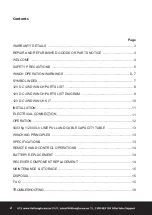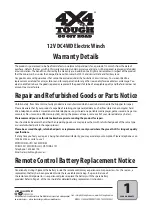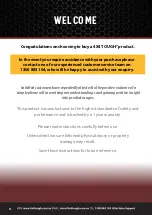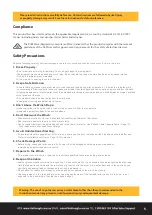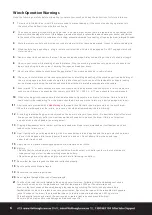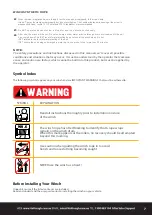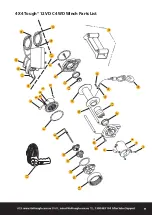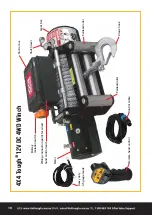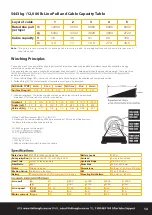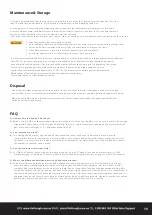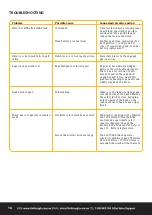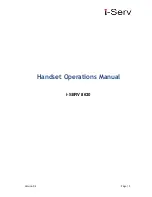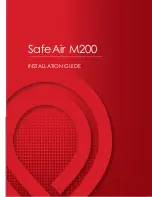
CAUTION:
1. Your battery must be kept in good condition.
2. Be sure battery cables are not drawn taught across any surfaces which could possibly damage them.
3. Corrosion on electrical connections will reduce performance or may cause a short.
4. Clean all connections especially in remote control switch and receptacle.
5. In salty environments use a silicone sealer to protect from corrosion.
It is also recommended to have your winch serviced every 12 months to keep the unit in optimum working condition.
Your 4X4 Tough winch should only be serviced by qualified persons. Examples include, qualified mechanics,
auto electricians and engineers. The winch should be removed from the vehicle prior to beginning the service.
Please ensure geniune parts are used for any spare parts that may be required during the service.
Contact the customer service department on 1300 883 104 if necessary to obtain parts under warranty.
Photographs of faulty parts are recommended to support warranty claims.
Please email these to [email protected]
FAQ
Q: How much rated line pull do I need?
A: Rated line pull refers to the maximum amount of weight that a winch can shoulder, so you need a winch with enough
strength to handle your vehicle's weight. Thankfully, there is a simple formula for calculating the correct rated line
pull: Gross Vehicle Weight x 1.5 = Minimum Rated Line Pull.
Q: Can I remove my winch?
A: Yes. During the off season, you can unbolt your winch and leave it at home. Some mounts make it easy to
remove the winch, and some require a bit more effort. Hitch mounts and grille guard mounts are the easiest since
the winch is so accessible. In a hidden, semi-hidden or replacement bumper setup, the winch sits behind or below
the bumper, so removal can be tricky.
Q: Can I operate my winch wirel essly?
A: Yes. While all winches come with a wired remote control, your 4X4 Tough Winch also operates wirelessly. With
maximum ranges of between 25 and 30 metres, Refer to the operating instructions on page 13 within this manual.
Q: What's the difference between electric and hydraulic winches?
A: The basic difference between an electric and a hydraulic winch is the power source. Electric winches link to the
vehicles battery, whereas hydraulic winches are driven from the power steering pump. Electric winches are the
most prevalent in the market place and as such greater choice is available. They have the advantage of being able
to operate without the vehicle running, however as they draw significant power from the battery it is recommended
the vehicle be running whilst winching operations are underway .Electric winches generate significant heat and it is
important they be run for only short periods of time before being rested to cool down. Hydraulic winches are able to
operate on a more continuous basis, however they can only operate if the vehicle is running.
Disposal
•
Please consider when disposing of electronic products such as a winch that some components can be recycled and
recovered for re-use. Do not attempt to dissemble any electronic product unless you are a trained electronics technician.
•
Many councils hold e-waste (electronic waste) collections. Contact your nearest council to enquire about the best
method of disposal in your area.
Maintenance & Storage
It is highly recommended that the winch be used regularly (once a month). Simply power the rope out 15m, free
spool 5 m and then power back in. This will keep all components in good working condition.
All moving parts in the winch are permanently lubricated with high temperature lithium grease at the time of
assembly. Under normal conditions factory lubrication will suffice. Inspect for any frays in the rope and replace if
necessary. If the rope becomes worn or damaged it must be replaced.
If you choose to remove the winch from your vehicle, store in an ambient, dry environment until you are ready to re-install
15

